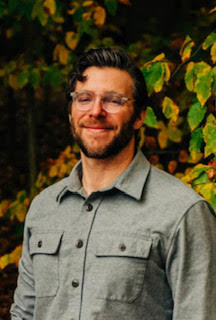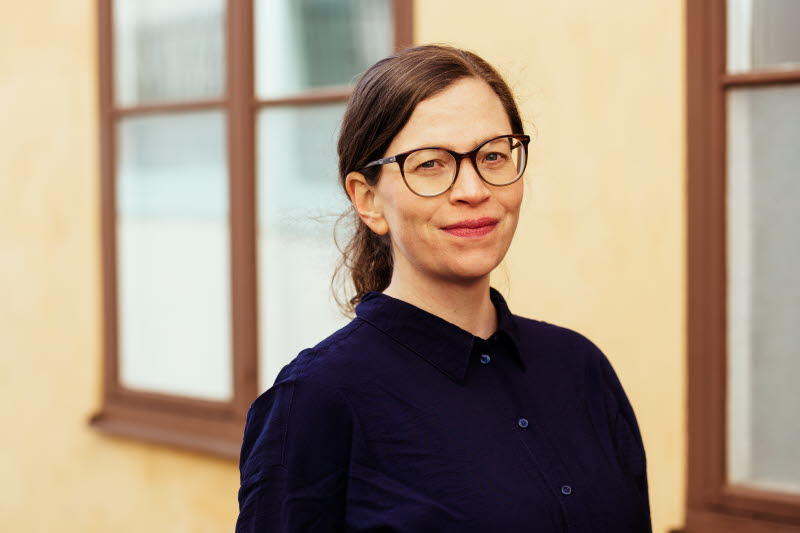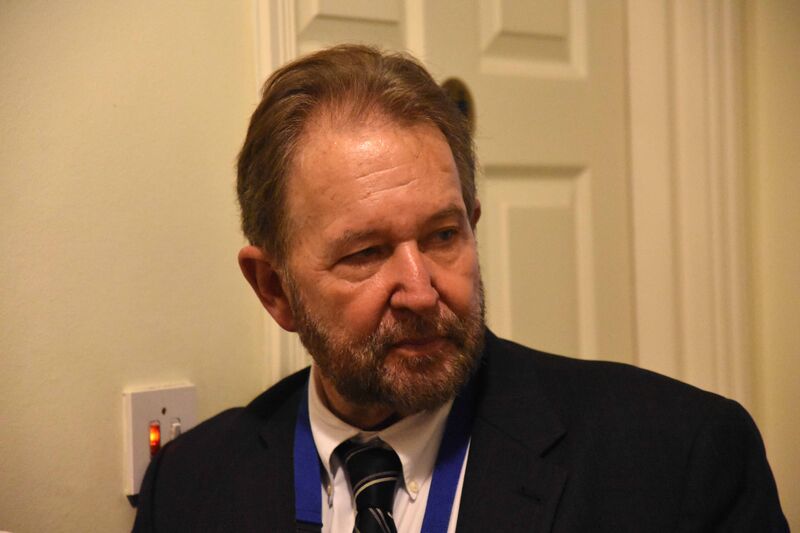Anmälan till ISTDP Academy VT 2024 öppen
För sjätte terminen i rad kör vi ett samarbete med vår systerförening i Danmark (Dansk Selskab for ISTDP, www.istdp-danmark.dk) med syfte att anordna föreläsningar om ISTDP på avancerad nivå. En uttalad ambition är att bjuda in presentatörer från Norden och andra delar av världen samt att visa på bredd i olika tillämpningar av ISTDP. Alla presentationer sker på engelska. Föreläsningarna sker via Zoom på kvällstid kl 17.00-19.30. Länk skickas ut ca ett dygn innan.
Vårens schema ser ut så här:
- Maury Joseph (US) den 7 februari
- Sandra Ringarp (SE) den 6 mars
- Robert Neborsky (US) den 3 april
- Josette ten Have-de Labije (NL) den 8 maj
Kostnaden är 1200 kr för alla fem föreläsningarna för medlemmar i Svenska Föreningen för ISTDP. Är du ännu inte medlem i föreningen kan du bli det i samband med anmälan. Medlem i föreningen blir du här: https://registreringar.istdpsweden.se. Förutom medlemsskap krävs även att du genomgått den tre dagar långa introduktionsutbildningen precore, samt att du har legitimation eller är student i slutet av din utbildning på legitimationsgrundande utbildning.
Mer information om presentationerna:
Maury Joseph (US) den 7 februari “Enactment and counter-enactment with a compliant patient”

While ISTDP training gives us a unique capacity to follow the patient, serving their conscious and unconscious agenda, it can also load us up with an agenda of our own—we pick up ideas about how therapy should go, how therapists should work, and what therapeutic processes are best, necessary, or important. Compliant patients may subtly encourage us to present an agenda that they can yield to and please in order to avoid their own conflicts, especially those related to power or individuation. If we accidentally do take a leading role in these situations the therapy may become a repetition of their problematic interpersonal patterns rather than a challenge to those patterns. Many good things may happen in the therapy despite this enactment, but the compliant pattern will be reinforced, and the problematic interpersonal and symptomatic impacts of chronic people-pleasing will continue. For this reason, it can be important for therapists to develop the skills that help them to detect the patient’s strategies for enacting a compliant transference, and to have strategies that can support their own efforts to refuse the authoritarian role that a patient may subtly and not-so-subtly prompt them to take. Diagnosis of and intervention against this pattern will be the focus of this webinar.
Participants in this webinar will be supported to:
-observe both the implicit nonverbal and explicit verbal signs of transference in a compliant patient
-learn counter-enactive strategies to challenge the transference role the patient is proposing (e.g., pressure against implicit, subtle resistance; explicit challenge to resistance when it becomes explicit)
-learn more about the relational concept of “unconscious enactment” and “counter-enactment” by observing the process in a videorecorded initial session
About Maury: I am a Licensed Clinical Psychologist in Washington, DC and Pennsylvania. Because of my background of training and teaching Intensive Short-Term Dynamic Psychotherapy (ISTDP), I am a certified by the IEDTA as a Teacher and Supervisor. I trained and later served as faculty chair of the ISTDP training program at the Washington School of Psychiatry, and was a faculty member there from 2015-2020. I joined the ISTDP faculty of the New Washington School of Psychiatry in May 2023. I served as an assistant clinical faculty member at George Washington University and adjunct faculty at The Chicago School of Professional Psychology, offering courses on psychoanalytic topics and supervision to clinical psychology doctoral students. I currently offer supervision groups and private seminars on psychodynamic topics.
Sandra Ringarp (SE) den 6 mars "The Art of Slowness in ISTDP"

With a big love for deep diving into the small things that makes a huge difference as we practice ISTDP, Sandra will focus on the art of slowness for this presentation. As Patricia Coughlin stated “go slow in the beginning so you can go faster in the end” – slowness can actually play a key role in the initial phase of ISTDP. While it may sound contraintuitive, the art of thorough, careful and slow inquiry in the beginning of a therapy actually lays the foundation for us to go “faster in the end”. Sandra will show the first 30 minutes of two trial therapy’s to illustrate what the art of slowness in ISTDP can look like, and how it can actually fasten up the work immensely.
About Sandra: Sandra Ringarp is a licensed psychologist and a certified ISTDP therapist and teacher/ supervisor. Sandra has worked with ISTDP since 2013 in a psychiatric clinic, a clinic for long term pain and now privately at the ISTDP clinic in Stockholm. After completing her core training in 2016, Sandra has continued to specialize in ISTDP through training and advanced supervision with Allan Abbass and Reiko Ikemoto-Joseph, among others. Sandra is chairman of the Swedish association for ISTDP. She is also the author of the book “Ångest för alla” at Natur & Kultur publishing house, soon to be published in Danish.
Robert Neborsky (US) den 3 april "1. Will you love me tomorrow? "A Case of Ambivalent Attachment" "2. The Woman Who Lost Herself in Psychoanalysis and Restored Herself in ISTDP. A Case of Disorganized Attachment".

Om Robert: Robert J. Neborsky, M.D., is a psychiatrist in private practice in Del Mar, California, and a Clinical Professor of Psychiatry at UCSD School of Medicine as well as UCLA School of Medicine (Hon). He was a founding member on the Editorial Board of the International Journal of Short-Term Dynamic Psychotherapy. He served as guest editor of the Ad Hoc Bulletin of Short-Term Dynamic Psychotherapy. In 2003, Dr. Neborsky was honored by the UCLA School of Medicine clinical faculty association as the Distinguished Psychiatric Lecturer of the year for 2002. He is a graduate of the University of Maryland School of Medicine (1971) where he earned the Jacob Finesinger Award for excellence in Psychiatry. He interned in medicine at Grady Memorial Hospital in Atlanta and performed his Psychiatry Residency at Emory University (72-75) where he earned the Hope Skobba Memorial Award.
He served two years in the United States Navy at Balboa Naval Hospital in San Diego where he eventually oversaw the in-patient psychiatric care unit. While there he completed his research on “High Dose Low Dose Haloperidol Administration in Acute Psychosis” and published this important work in the Archives of General Psychiatry. Upon leaving the Navy, he joined the faculty of UCSD School of Medicine and ran the emergency psychiatric service at the VA Hospital in La Jolla California. Eventually he chaired undergraduate psychiatric education.
In 1981 he left the university for private practice where he helped found Tri City Hospital, In Patient Psychiatry Service and later was Director of Charter Hospital Psychiatric Programs. As part of his professional activities, he served as Medical Director of the Lifespan Learning Institute in Los Angeles and developed a strong research interest in attachment theory which he combined with his ongoing study and work in Short-term Dynamic Psychotherapy with Habib Davanloo, MD. He was a founding member and served on the Board of IEDTA
In 2001, he co-authored Short-Term Therapy for Long Term Change (Norton) and is a contributing author in the 2003 book, Healing Trauma (Norton). In 2011 along with Josette ten Have de Labije he authored Roadmap to the Unconscious:Mastering Intensive Short-Term Dynamic Psychotherapy, Karnac Books (translated and published in Polish in 2017). In 2013 he published Predicting Attachment Status from Observation of a Clinical Intensive Psychotherapy Interview which was nominated for Progress in Psychology as one of the top articles of that year. The Second edition of The Collected Writings of Robert J. Neborsky was published by Itasca Books. (2018)
Dr. Neborsky’s professional activities, in addition to treating patients, include training students in the techniques of his unique Attachment-Based variety of Intensive Short-Term Dynamic Psychotherapy (IS-TDP), presenting at local, national and international symposia and seminars. He is one of the founders of ISTDP-UK (Bristol) and ISTDP-London and currently serves as a senior consultant to their training programs. Historically, he founded and taught Core Group Trainings in San Diego, Los Angeles (with Dr Davanloo), San Francisco, Calgary, Canada; Aarhus, Denmark; and London, England.
His current research interests include examination of the interface between attachment theory, neuroscience, and psychotherapy. He is also exploring the application of ISTDP techniques to enhance recovery from traumatic brain injury and post concussive syndrome associated with post traumatic stress disorder. He is actively engaged in the application of new therapies for Treatment Resistant Depression. In addition, he is refining techniques of repairing chronic overuse of the parasympathetic nervous system as a defective anxiety regulatory mechanism.
Most recently, he was a keynote presenter at the Polish Society for Integration of Psychotherapy in Warsaw, Poland in June 5, 2022 where he demonstrated this work. Recently, he presented “The Theory and Practice of Attachment Based ISTDP” in a two-day seminar in Helsinki, Finland in June 2023. Currently, he is also serving as a senior consultant to ISTDP Finland in Helsinki, Finland.
On October 27, he along with the Faculty of ISTDP-UK hosted the David Malan Memorial Conference at the Royal Society of Medicine in London. Dr Malan’s contributions to the development of ISTDP cannot be overstated.
Josette ten Have-de Labije (NL) den 8 maj "The man who was stuck in a pecking order"

Many of our patients that enter the initial interview have lost hope and faith in their own capacities to fulfill their longings.The prerequisite for an effective conscious/unconscious working alliance is the therapist´s ability to helping the patient to have hope and faith again in his own capacities, to regain the joy of comprehending own processes, doing effort in grasping and understanding new concepts, new ways of looking at themselves and at the outside worldThe therapy vignettes ( parts of the first three sessions, each of 3 hour duration) you will witness will show consecutive steps toward establishing a conscious and unconscious working alliance with the patient, who had been referred because his therapy with another ISTDP colleague had been stuck. A few months before our initial interview the patient has had a medical investigation because of his longstanding intestinal problems. However no pathology was found and the patient ‘s Irritable Bowel syndrome was diagnosed as of psychosomatic origin.
About Josette: Josette ten Have-de Labije is a clinical psychologist and psychotherapist.She was trained as cognitive-behavior therapist ( individual and group setting), Couples therapist, therapist for psychodynamic individual and group psychotherapy, therapist for Intensive Short-Term Dynamic Psychotherapy From 1989 – 1992 she was member of the Dutch ISTDP core-group, which was trained and supervised by Professor Dr H. Davanloo.She has given workshops, training and supervision on ISTDP in the USA, Canada, the Netherlands, England, Denmark , Poland, Italy., Iran, China, South Africa, She has given several presentations at Dutch and at International Congresses on Behavior Therapy and on Intensive Short Term Dynamic Psychotherapy. Until january 2013 she has been a member of the Board of Directors of the International Experiential Dynamic Psychotherapy Association (IEDTA). At present she is in the IEDTA’s Advisory Board She is editor in chief of the Ad Hoc Bulletin for STDP : Practice and Theory



Medlemsdiskussion